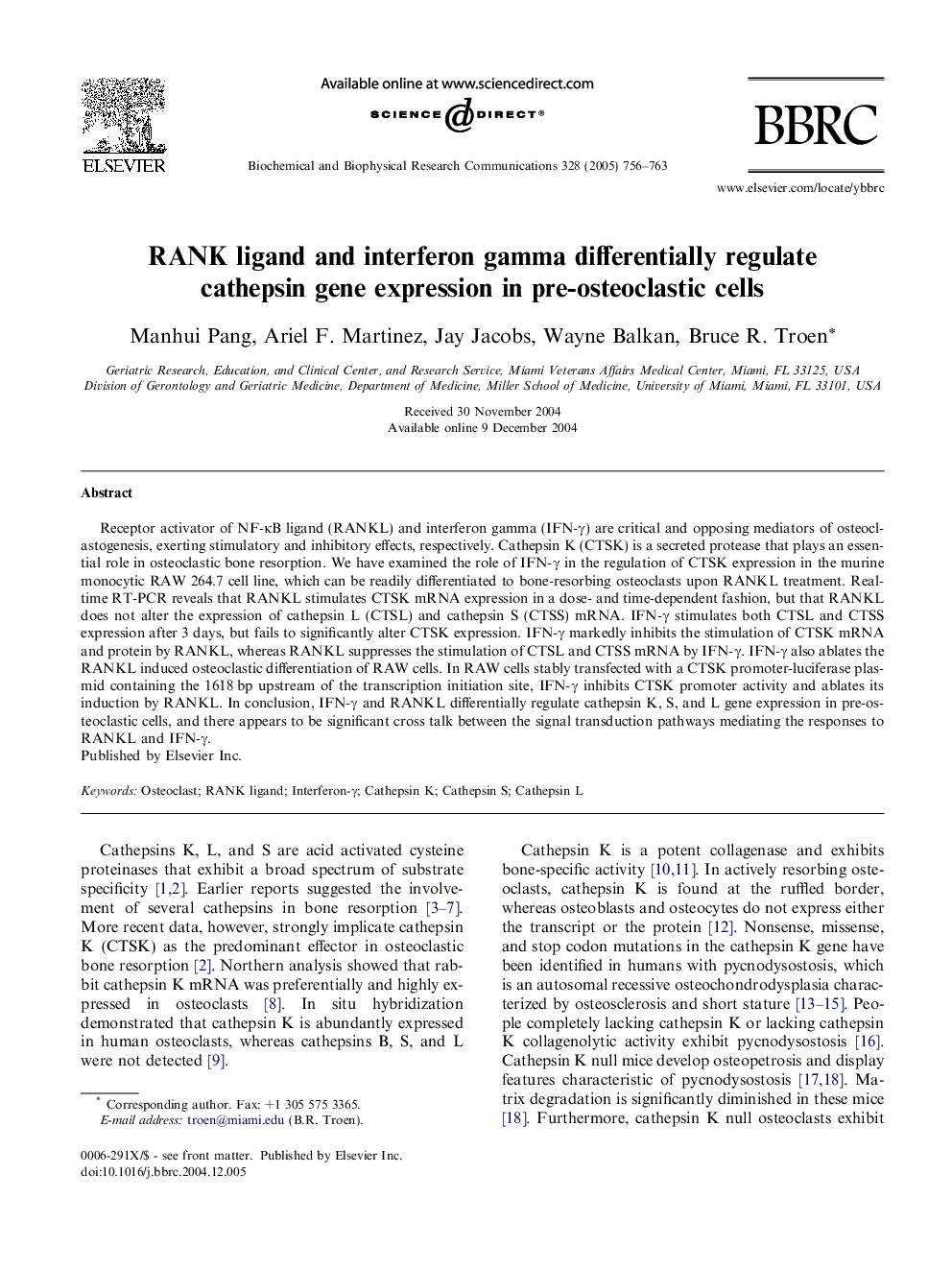| Article ID | Journal | Published Year | Pages | File Type |
|---|---|---|---|---|
| 10772153 | Biochemical and Biophysical Research Communications | 2005 | 8 Pages |
Abstract
Receptor activator of NF-κB ligand (RANKL) and interferon gamma (IFN-γ) are critical and opposing mediators of osteoclastogenesis, exerting stimulatory and inhibitory effects, respectively. Cathepsin K (CTSK) is a secreted protease that plays an essential role in osteoclastic bone resorption. We have examined the role of IFN-γ in the regulation of CTSK expression in the murine monocytic RAW 264.7 cell line, which can be readily differentiated to bone-resorbing osteoclasts upon RANKL treatment. Real-time RT-PCR reveals that RANKL stimulates CTSK mRNA expression in a dose- and time-dependent fashion, but that RANKL does not alter the expression of cathepsin L (CTSL) and cathepsin S (CTSS) mRNA. IFN-γ stimulates both CTSL and CTSS expression after 3 days, but fails to significantly alter CTSK expression. IFN-γ markedly inhibits the stimulation of CTSK mRNA and protein by RANKL, whereas RANKL suppresses the stimulation of CTSL and CTSS mRNA by IFN-γ. IFN-γ also ablates the RANKL induced osteoclastic differentiation of RAW cells. In RAW cells stably transfected with a CTSK promoter-luciferase plasmid containing the 1618 bp upstream of the transcription initiation site, IFN-γ inhibits CTSK promoter activity and ablates its induction by RANKL. In conclusion, IFN-γ and RANKL differentially regulate cathepsin K, S, and L gene expression in pre-osteoclastic cells, and there appears to be significant cross talk between the signal transduction pathways mediating the responses to RANKL and IFN-γ.
Related Topics
Life Sciences
Biochemistry, Genetics and Molecular Biology
Biochemistry
Authors
Manhui Pang, Ariel F. Martinez, Jay Jacobs, Wayne Balkan, Bruce R. Troen,
